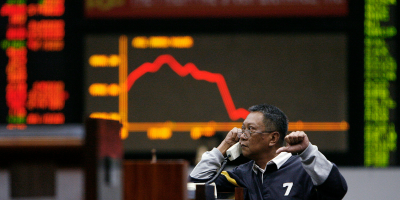CALGARY – Natural gas producers in Western Canada have white-knuckled it through months of depressed prices, with the expectation that their fortunes will improve when LNG Canada comes online in the middle of next year.
But the supply glut plaguing the industry this fall is so large that not everyone is convinced the massive facility’s impact on pricing will be as dramatic or sustained as once hoped.
As the colder temperatures set in and Canadians turn on their furnaces, natural gas producers in Alberta and B.C. are finally starting to see some improvement after months of low prices that prompted some companies to delay their growth plans or shut in production altogether.
“We’ve pretty much been as low as you can go on natural gas prices. There were days when (the Alberta natural gas benchmark AECO price) was essentially pennies,” said Jason Feit, an advisor at Enverus Intelligence Research, in an interview.
“As a producer, it would not be economic to have produced that gas . . . It’s been pretty worthless.”
In the past week, AECO spot prices have hovered between $1.20 and $1.60 per gigajoule, a significant improvement over last month’s bottom-barrel prices but still well below the 2023 average price of $2.74 per gigajoule, according to Alberta Energy Regulator figures.
The bearish prices have come due to a combination of increased production levels — up about six per cent year-over-year so far in 2024 —as well as last year’s mild winter, which resulted in less natural gas consumption for heating purposes. There is now an oversupply of natural gas in Western Canada, so much so that natural gas storage capacity in Alberta is essentially full.
Mike Belenkie, CEO of Calgary-headquartered natural gas producer Advantage Energy Ltd., said companies have been ramping up production in spite of the poor prices in order to get ahead of the opening of LNG Canada. The massive Shell-led project nearing completion near Kitimat, B.C. will be Canada’s first large-scale liquefied natural gas export facility.
It is expected to start operations in mid-2025, giving Western Canada’s natural gas drillers a new market for their product.
“In practical terms everyone’s aware that demand will increase dramatically in the coming year, thanks to LNG Canada . . . and as a result of that line of sight to increased demand, a lot of producers have been growing,” Belenkie said in an interview.
“And so we have this temporary period of time where there’s more gas than there is places to put it.”
In light of the current depressed prices, Advantage has started strategically curtailing its gas production by up to 130 million cubic feet per day, depending on what the spot market is doing.
Other companies, including giants like Canadian Natural Resources Ltd. and Tourmaline Oil Corp., have indicated they will delay gas production growth plans until conditions improve.
“We cut all our gas growth out of 2024, once we’d had that mild winter. We did that back in Q2, because this is not the right year to bring incremental molecules to AECO,” said Mike Rose, CEO of Tourmaline, which is Canada’s largest natural gas producer, in an interview this week.
“We moved all our gas growth out into ’25 and ’26.”
LNG Canada is expected to process up to 2 billion cubic feet (Bcf) of natural gas per day once it reaches full operations. That represents what will be a significant drawdown of the existing oversupply, Rose said, adding that is why he thinks the future for western Canadian natural gas producers is bright.
“That sink of 2 Bcf a day will logically take three-plus years to fill. And then if LNG Canada Phase 2 happens, then obviously that’s even more positive,” Rose said.
While Belenkie said he agrees LNG Canada will lift prices, he’s not as convinced as Rose that the benefits will be sustained for a long period of time.
“Our thinking is that markets will be healthy for six months, a year, 18 months — whatever it is — and then after that 18 months, because prices will be healthy, supply will grow and probably overshoot demand again,” he said, adding he’s frustrated that more companies haven’t done what Advantage has done and curtailed production in an effort to limit the oversupply in the market.
“Frankly, we’ve been very disappointed to see how few other producers have chosen to shut in with gas prices this low. . . you’re basically dumping gas at a loss,” Belenkie said.
Feit, the analyst for Enverus, said there’s no doubt LNG Canada’s opening will be a major milestone that will help to support natural gas pricing in Western Canada. He added there are other Canadian LNG projects in the works that would also provide a boost in the longer-term, such as LNG Canada’s proposed Phase 2, as well as potential increased demand from the proliferation of AI-related data centres and other power-hungry infrastructure.
But Feit added that producers need to be disciplined and allow the market to balance in the near-term, otherwise supply levels could overshoot LNG Canada’s capacity and periods of depressed pricing could reoccur.
“Obviously selling gas at pennies on the dollar is not a sustainable business model,” Feit said.
“But there’s an old industry saying that the cure for low gas prices is low gas prices. You know, eventually companies will have to curtail production, they will have to make adjustments.”
This report by The Canadian Press was first published Oct. 25, 2024.
Companies in this story: (TSX:TOU; TSX:AAV, TSX:CNQ)
